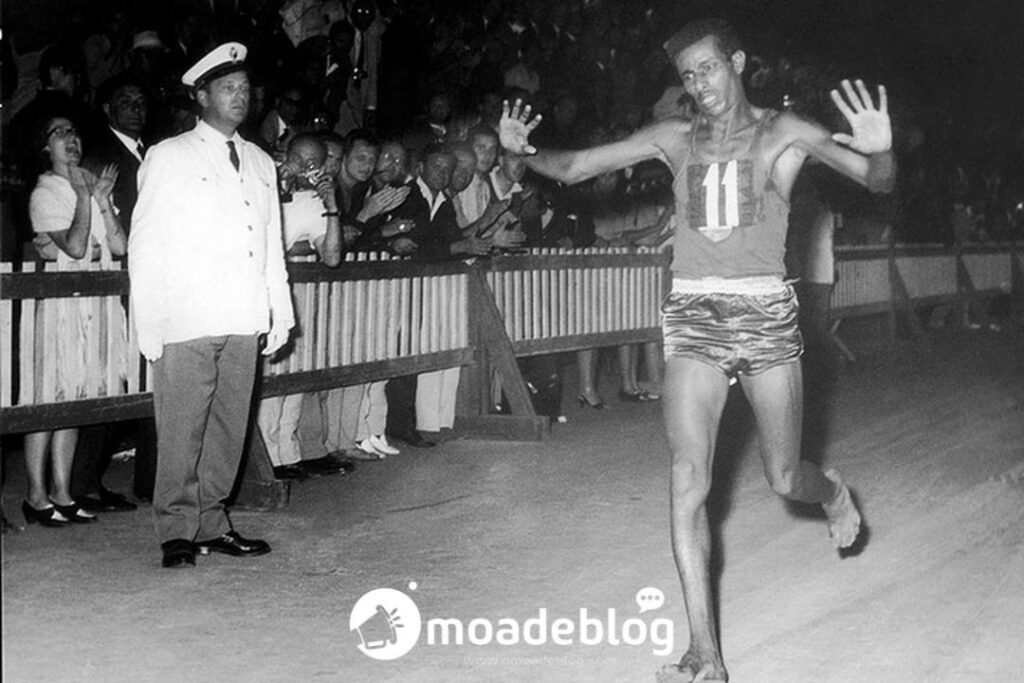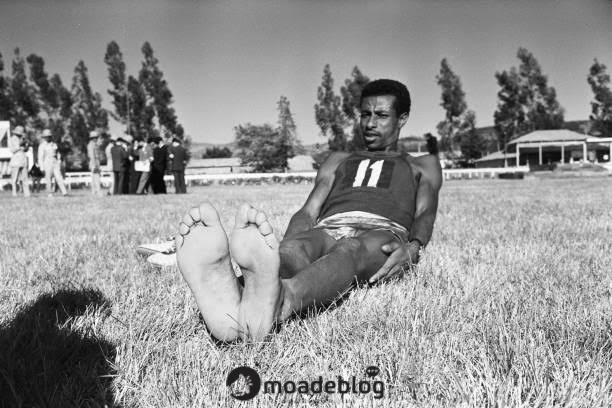Abebe Bikila, born on August 7, 1932, in Jato, Ethiopia, rose to fame as a marathon runner after winning gold at the 1960 Rome Olympics while running barefoot. His victory not only set a world record with a time of 2 hours, 15 minutes, and 16.2 seconds but also made him the first Black African to win an Olympic gold medal. In a remarkable feat, Bikila defended his title at the 1964 Tokyo Olympics, breaking his own record with a time of 2 hours, 12 minutes, and 11.2 seconds, becoming the first athlete to win two consecutive Olympic marathons.

Bikila’s journey began humbly as the son of a shepherd, moving to Addis Ababa as a teenager and joining Emperor Haile Selassie’s imperial bodyguards, where he rose to the rank of captain. His barefoot triumph in Rome, followed by his victory in Tokyo, marked the start of African dominance in long-distance running. Despite his impressive victories, his attempt to run a third Olympic marathon in Mexico City in 1968 was cut short by a broken leg, forcing him to withdraw.
Tragically, in 1969, Bikila was involved in a car accident that left him paralyzed from the neck down. Even with his injury, he remained active in sports, competing in archery and cross-country events for disabled athletes. His legacy continues through the Bikila Award, established in 2013 to honor outstanding Ethiopians worldwide. Bikila’s barefoot victory in Rome remains iconic, symbolizing not just physical endurance but also a proud moment of reclaiming his heritage as he passed the stolen obelisk of Aksum, taken by Mussolini’s forces from Ethiopia.
